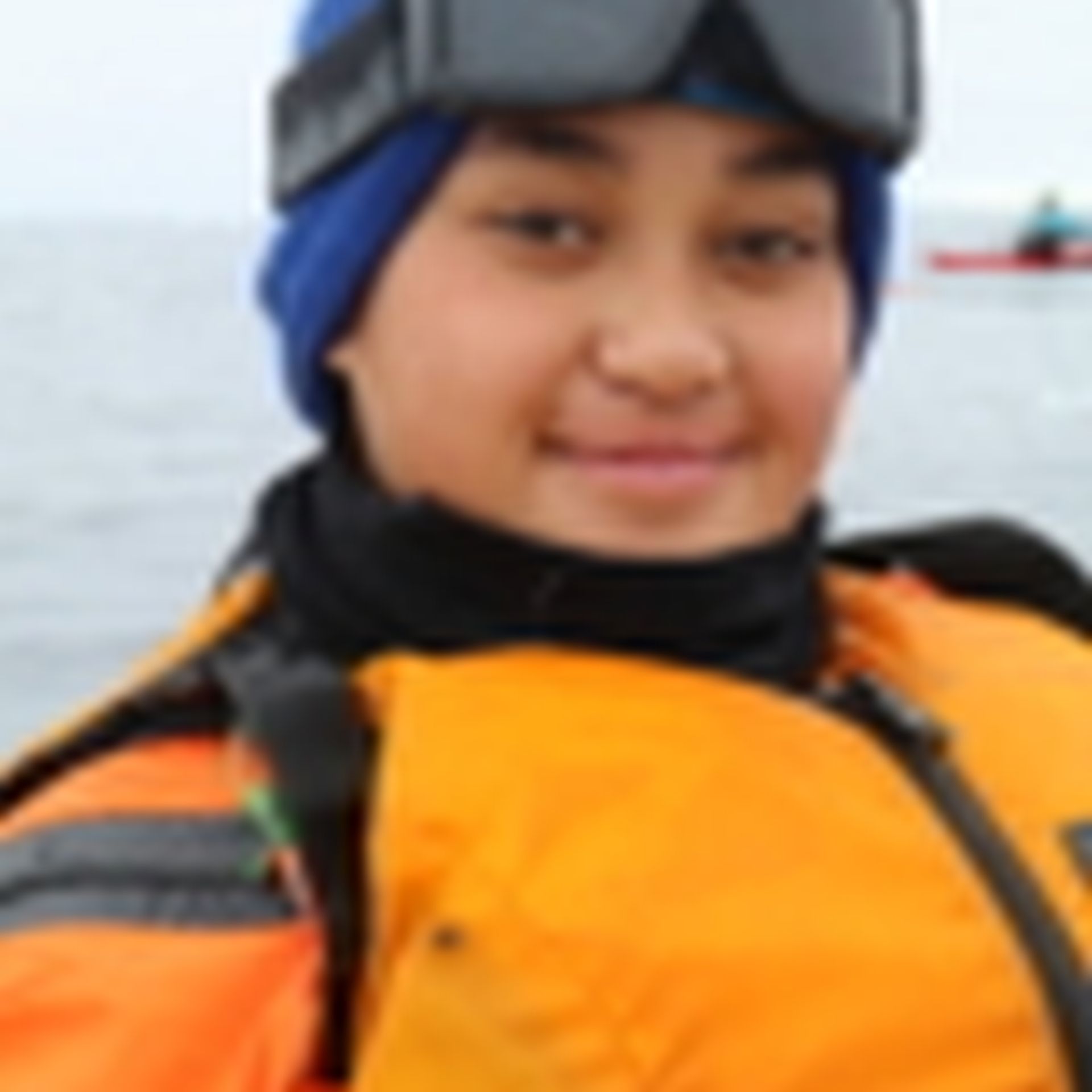Test Your Boundaries
After a short break and some time to process her experience in Antarctica, we caught up with Sir Edmund Hillary Collegiate Deputy Principal Shauna Eldridge to get her perspective on the expedition, and find out about the highlights of her trip, and the big challenges she faced.
About Shauna
Shauna is Deputy Principal at Sir Edmund Hillary Collegiate, and has more than 30 years’ experience as an educator. She is passionate about providing opportunities for her students to explore, achieve and engage with the wider world. In 2009, Shauna emigrated from South Africa to New Zealand with her husband, Dave, by sailing around the world on a yacht that Dave built. She says she learnt more about herself on that trip than all of her previous years of studying and working added together. Most importantly, she learnt how to conquer her fear of storms, large seas, and the unknown.
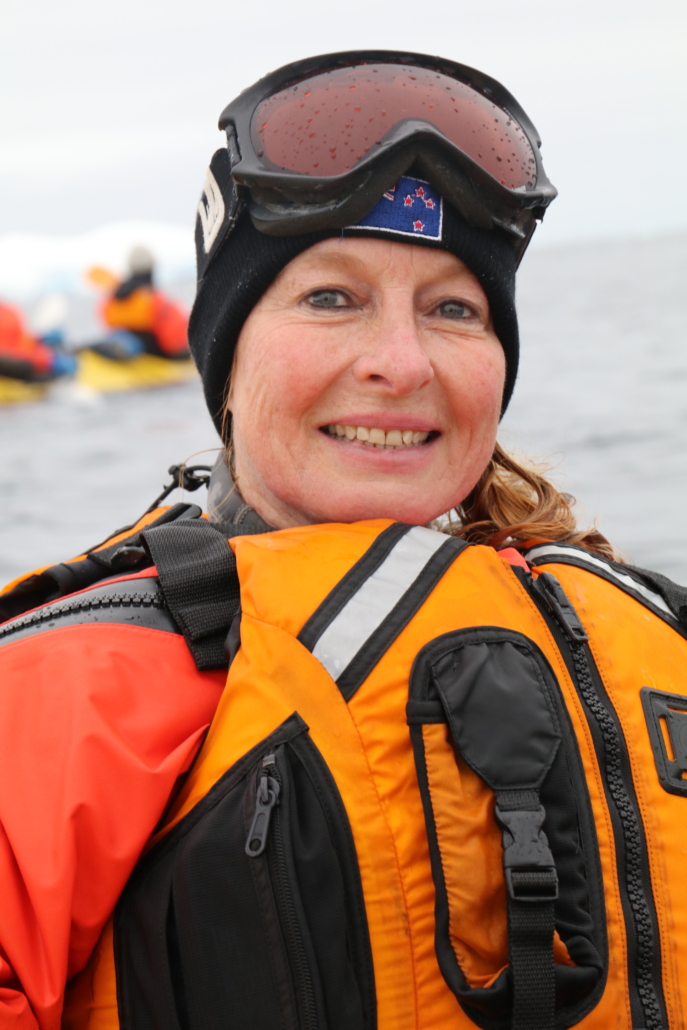 Marcus Waters/ Antarctic Heritage Trust
Marcus Waters/ Antarctic Heritage Trust Shauna in Antarctica
What was your favourite part of the trip?
It was absolutely amazing to see the growth in personal development and confidence, as well as the leadership capacity of my students, Jaylee Savage and A’aifou Potemani. I was so proud of them throughout the expedition, and particularly when they taught the team a haka on the ship and led its performance in front of the rest of the guests. A’aifou is generally a quiet and reserved student at school, so to see him perform karaoke in front of a large audience and receive two standing ovations was also fantastic. Another highlight was the time and investment that the expedition supporters and mentors, Richard, Bill and Andrew, put into Jaylee and A’aifou, who learnt so much from them. My other favourite part of the trip was the amazing opportunity Antarctic Heritage Trust provided for us to kayak, both throughout the expedition, and during the six sessions they arranged for us at the Vector Wero Whitewater Park before we left. This gave our students their first experience of the expedition, of pushing their boundaries, overcoming fear, and extending themselves in a way they hadn’t before. Once in Antarctica, the opportunity to kayak definitely enhanced our experience, as it brought us so much closer to the wonders of the continent, from the icebergs, to the whales, seals and penguins. Seeing Jaylee’s confidence and excitement as she moved from our double kayak to a single one, and watching both students take the polar plunge, were other highlights for me. We all had such an incredible, growthful experience on the expedition. It was something you can’t buy for love or money.
What was the most challenging part? How did you conquer this?
The cold when we were kayaking was probably the most challenging aspect. It didn’t matter how many layers we put on, our feet and hands were always cold about halfway through the kayak. Everybody pushed through though and didn’t complain. When we got back to the ship and took our gear off in the mudroom the first thing we were handed was a hot chocolate, which warmed us up again! The process of confidence building for my students in an environment which was totally and utterly unfamiliar to them, was also a challenge, and while they were definitely stretched, their response was amazing. They took every opportunity and ran with it.
What did you learn or discover about yourself?
Strangely enough, it was how all my previous life experience, especially sailing around the world, had prepared me for the expedition. I was as calm as anything, even when faced with the uncertainty of how we were going to get back to New Zealand. I tried to pass this on to the team by encouraging them to be robust and resilient, and prepare for any eventuality, while enjoying each day, and knowing that whatever happened, it was an opportunity to learn and grow. The extra week we spent in quarantine on the ship was in some ways the most growthful period for the whole group, as we all learned so much more about ourselves and each other.
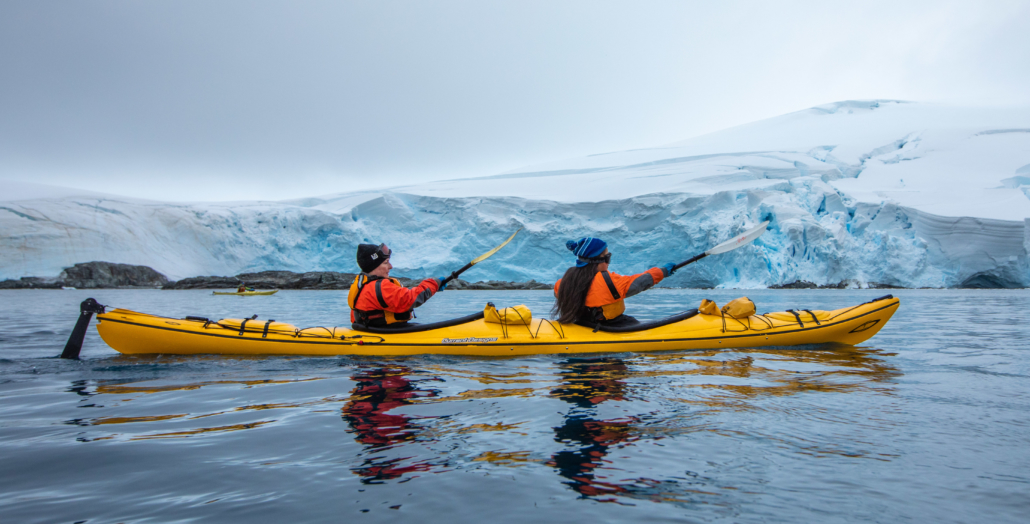 Mike Dawson/ Antarctic Heritage Trust
Mike Dawson/ Antarctic Heritage Trust Shauna and Jaylee kayaking in Antarctica
Which sights, sounds, feelings and experiences of Antarctica stand out as you reflect back on your experience?
The sheer size of all aspects of Antarctica. When we were kayaking, we looked back at the ship at anchor and it was dwarfed by the icebergs and mountains. It made us realise our place on earth and how insignificant we truly are. Being so close to the power of nature was also incredible. Many times, when in our kayaks, some ice would calve off an iceberg and cause a wave. Having whales, penguins and seals right under our kayaks was also utterly amazing.
How did going to Antarctica make you think about the historic polar explorers? In what way did these reflections impact on your personal experience?
I have enormous respect for all those who have gone before us – including our Expedition Leader, Marcus Waters. I had the privilege of finding two of Marcus’ books in the ship library and spent the first week reading them. I’m in awe of what he has accomplished. It was also wonderful to attend the numerous presentations on the ship, with many of these about the historic explorers, including the recent movie about Shackleton. It gave us a real feel for what they went through. Coming from the comfort of my cabin on the ship, I really had no idea how they survived the challenges!
What was something you experienced that was different to your expectations?
One of my takeaways is what the earth looks like, in this case Antarctica, without the presence of man. It is absolutely beautiful, with colours you can’t really capture through photographs or visuals. You can experience true solitude down there, and such close proximity to nature – in fact how it really should be. Imagine if the rest of world could be like this in respect to nature and our environment?
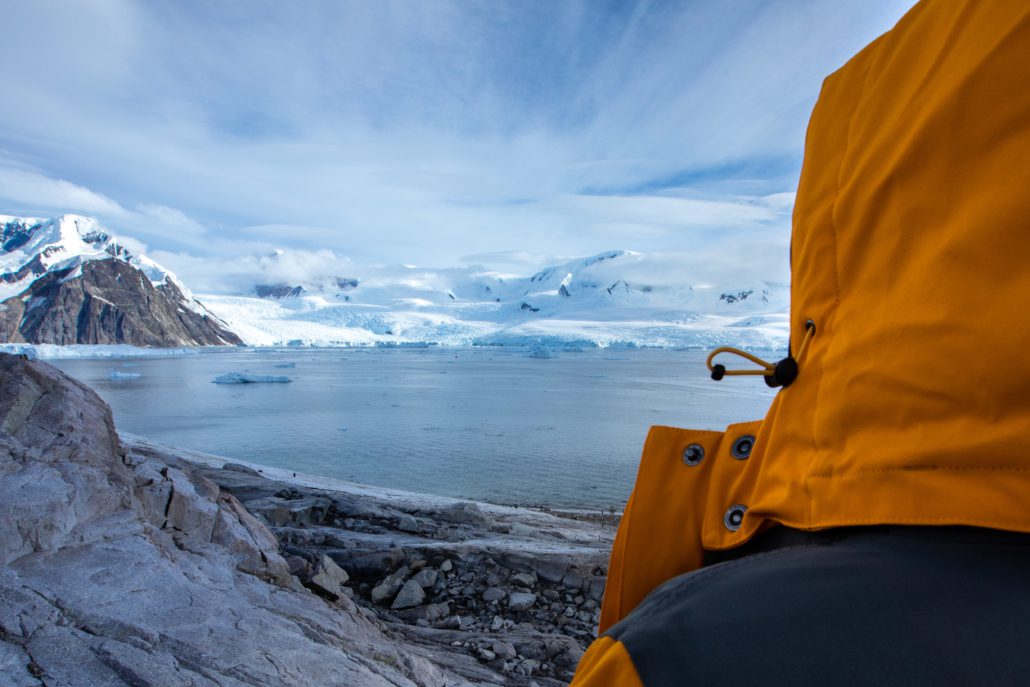 Mike Dawson/ Antarctic Heritage Trust
Mike Dawson/ Antarctic Heritage Trust Breathtakingly beautiful scenery in Antarctica
When you share your story, what will be the things you want to share most?
My presence on the trip was to support the students – so that will always be my overarching message – what an amazing opportunity I had to watch them grow, and support them in pushing through those personal boundaries and fears, and stepping into an experience they had never had before in terms of exploration.
What other messages will you be giving to audiences about the trip?
If you get an opportunity to go to Antarctica or take part in any adventure or new activity – go for it! I believe every person should extend themselves, explore and go beyond their current life experience. It doesn’t need to be expensive. If someone has never been tramping or kayaking before, it is an opportunity to grow. I encourage everyone to get outside their bubble once a month and do something that they haven’t done before. There is a saying that if you don’t grow, you are essentially dying on the inside.
How did you and the team deal with the disruption to your trip caused by COVID-19? Did this experience make you reflect on the challenges faced by the historic explorers? What similarities do you think there might be?
I felt very fortunate as Marcus is man of planning and structure, and kept us informed with progress at regular daily meetings. As a team we stuck together and supported each other, coming together to do things like learn and perform the haka, watch New Zealand movies, and engage in a lot of other activities to keep us working as a team.
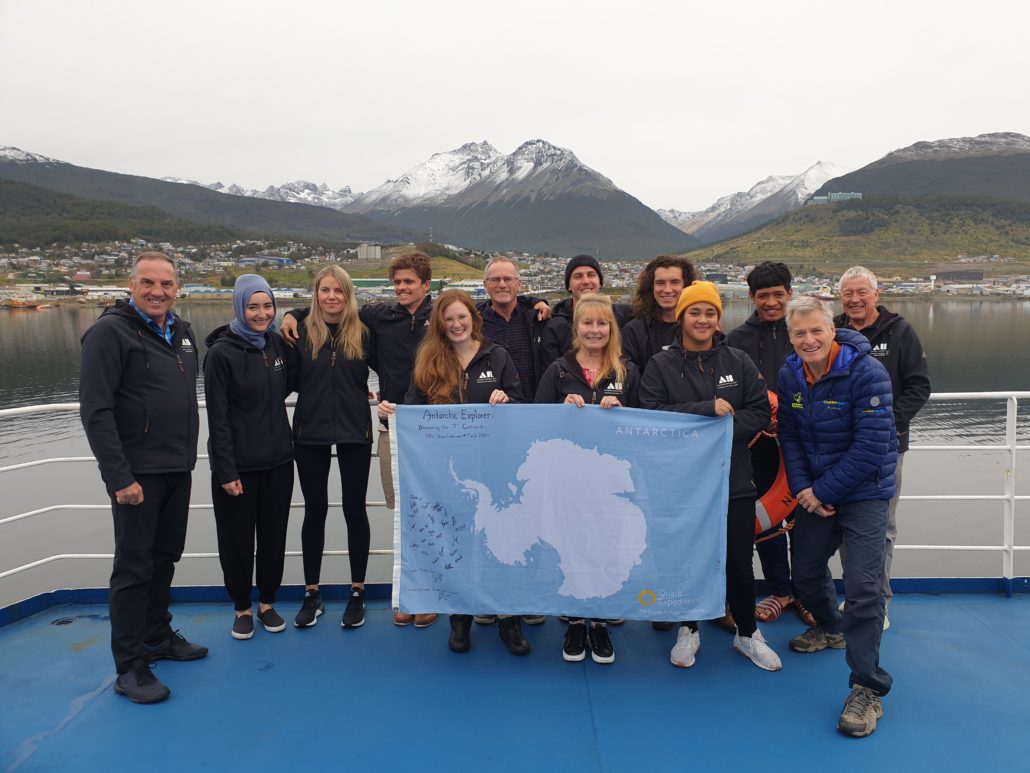 Antarctic Heritage Trust
Antarctic Heritage Trust Inspiring Explorers team quarantining on the Ocean Endeavour
Any comments about the team itself? What were the strengths of the team? Why do you think it worked well together?
I personally like teams where everybody is different. The diversity in our group was amazing and a real strength. The team was very well led by Marcus, who is the most calm, cool and collected person, Mike who assisted us with our kayaking expertise, and the supporters, Bill, Andrew and Richard, who all brought their own unique strengths to the expedition.
Do you have any advice for future expedition members?
Just do it. Put yourself out there. Whatever your learning is, you will find it in Antarctica. You will be pushed, extended, and your boundaries will be tested in ways you never imagined.
Click here to add your own text


